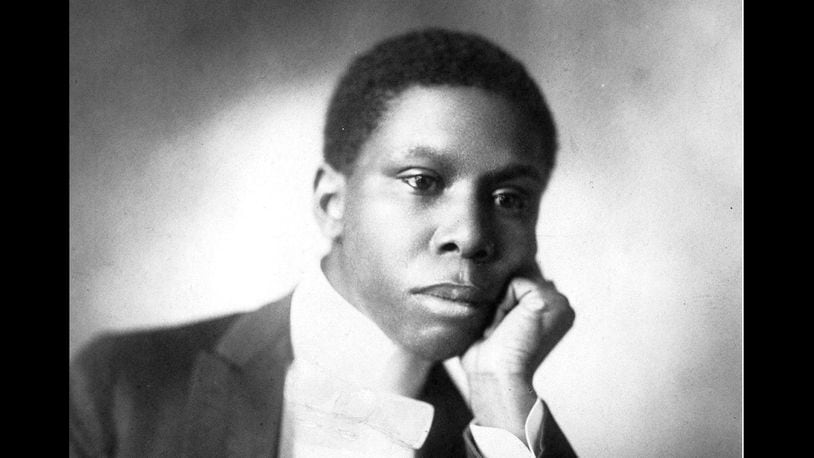Dunbar’s father, Joshua, escaped slavery and enlisted to serve in the Union Army before settling in Dayton. His mother, Matilda, was born a slave in Fayette County, Kentucky. Despite being illiterate herself, Matilda instilled a love for language in her son.
As a child, Matilda would surreptitiously pull up a box for a seat on her master’s veranda and listen to him tell stories to his own children according to LaVerne Sci, a Dunbar scholar who served as the Dunbar House site manager for 20 years.
Though Dunbar was the first child born into freedom for Matilda, his parents’ experiences as slaves influenced his writing.
“The world saw them as chattel,” said LaVerne Sci, associate member of the Dunbar High School Alumni Association. “Paul saw his generation as being a part of humanity. He was the first person in literature to provide the suggestion of the humanity of the black man.”
At age 6, Dunbar wrote his first poem, “An Easter Ode.” Six years later he recited that poem to the congregation of Eaker Street A.M.E. Church in Dayton, his first known public reading.
Lack of work and a growing problem with alcoholism led to divorce for Dunbar’s parents. Joshua died in 1885 when his son was 13.
Dunbar’s two older brothers dropped out of school to help support the family, but Matilda, who had a special bond with her youngest son, made sure Paul was educated.
Dunbar attended the Tenth Street Elementary School and then went on to attend Central High School, where he edited the Dayton Tattler, an African-American newspaper published by his classmate Orville Wright.
During high school his first published work "Our Martyred Soldiers," a poem about Memorial Day, appeared in the pages of the Dayton Herald.
After high school, Dunbar found career prospects limited for an African-American man. His first, briefly-held job was as a janitor at NCR, but he wasn’t strong enough to lift things, according to Sci.
Then he found work as an elevator operator in the Callahan Building, where he scribbled down bits of poetry between calls and studied the dialects of the riders. That work eventually led to his first self-published book, “Oak and Ivy,” which he sold for $1 to the people who rode his elevator.
“Majors and Minors,” his second book of poetry was published in 1896 and transported him to national acclaim. He toured the United States giving public readings and in 1897 sailed to London where he traveled in English literary circles.
Dunbar used his mastery of words to court Alice Ruth Moore, a literary figure in her own right, and the couple eloped in 1898.
Dunbar’s chronic health problems worsened. Diagnosed with tuberculosis, he sought relief through alcohol. Alice Ruth Moore left him in 1902.
The last three years of his life, Dunbar kept writing while his mother cared for him. He died Feb. 9, 1906, at age 33, and was buried in Woodland Cemetery.
“Dunbar wrote with Dayton as his solid foundation and as his reference,” Sci said. “It was in Dayton that he found his richest and greatest experiences and all the elements of beauty and joy that he enjoyed.”
About the Author
